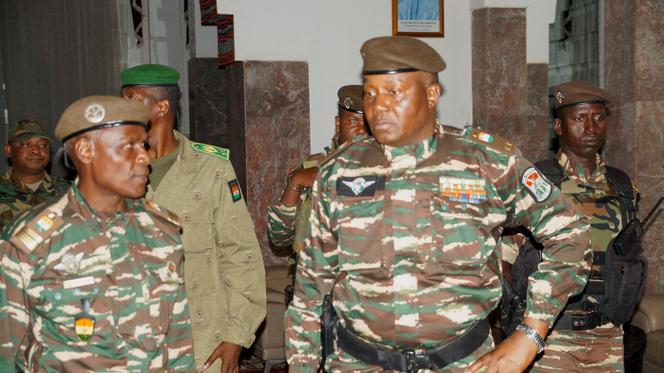


The strategy of closing ranks while spreading fear of a multi-faceted enemy ready for battle is a formula already tested in Mali and Burkina Faso that has once again proved its effectiveness. In Niger, it sounds like a call for mobilization the day before a major demonstration in support of the coup leaders in the capital on Thursday, August 10, and a meeting of leaders of the Economic Community of West African States (ECOWAS) in Abuja, Nigeria.
On August 9, the ruling junta in Niamey accused France of violating the closure of its airspace and "releasing terrorists." The National Council for the Safeguard of the Homeland (CNSP) said, "We are witnessing a real plan to destabilize our country [to] create a feeling of widespread insecurity," an accusation that Paris immediately denied. The French Foreign Ministry responded that no attack had taken place and no terrorists had been released and that the violation in question had been "the subject of prior agreement and technical coordination with Niger’s forces."
But the message got through. The coup leaders have repeated over and over again since July 26 that the reason they seized power was to "put an end to the deposed regime’s management of the security issue, a management that, objectively, had shown its limitations and left no prospect of a medium or long-term solution to the crisis," in the words of General Abdourahamane Tiani, now the self-proclaimed head of state, in his last televised address on August 2.
The argument, also put forward by the Malian and Burkinabe militaries to legitimize their coups in 2020 and 2022, resonates in a country tainted by jihadist violence. Niger, like its neighbors, has been fighting for years against terrorist movements active in the Sahel region, affiliated with Al-Qaeda or the Islamic State in the west and Boko Haram in the southeast.
In contrast to the juntas in power in Mali and Burkina Faso, which relied on the services of Russian mercenaries and armed tens of thousands of civilian auxiliaries, the authorities in Niamey pursued a policy of reaching out to jihadists in parallel with military operations, resulting in amnesties and the integration of former insurgents into the regular forces. The strategy has borne fruit. Local media have reported that General Salifou Mody, chief of staff of the Armed Forces from January 2020 to April 2023 and now the junta’s second-in-command, acknowledged its success during his New Year’s greetings, hailing "the lull observed in 2022."
You have 54.88% of this article left to read. The rest is for subscribers only.
